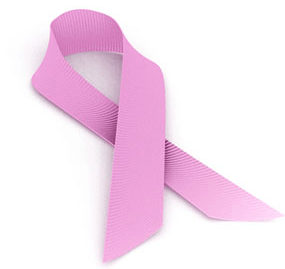Population-based Cancer Registries critical – ACO
The African Cancer Organisation (ACO) has urged the Government to urgently establish Population-Based Cancer Registries across the county.
Mr Paul Opoku Agyemang, the Executive Director of ACO, who made the call in an interview with the Ghana News Agency, (GNA) in Accra, on Friday, explained that though two hospital-based registries were being established in Accra and Kumasi, every area should have one to generate the needed data to support cancer research and also address the national burden of cancer.
He said the Former President John Dramani Mahama had indicated his support for that cause and was hopeful that President Nana Addo Dankwa Akufo-Addo would continue from where he left off because the data would help give the general picture of the disease’s burden and measure progress.
It would also help to assess whether the intervention systems were working as well as help doctors and nurses to evaluate treatment regimen and their effectiveness on their patients, help government make cancer policies, allocate and prioritise resources, he said.
“The Cancer registry is the brain and central nervous system of cancer control programme everywhere…Therefore, we need politicians to make laws that will make cancers a reportable disease and also accord them the needed attention,” he said.
He also called on the Ministry of Health to focus on the prevention of the disease as well as to ensure that the treatment of the disease was covered under the National Health Insurance Scheme.
The common cancers in Ghana are cervical, liver, breast, lymphoma and prostate.
Speaking on a major anti cancer campaign the organisation intended to launch, Mr Opoku Agyemang said it was the goal of the organisation to turn existing cancer knowledge into action.
Dubbed: “StandUp2AfricanCancer,” the campaign would be launched on February 4.
“It is also the goal of the campaign to bring the knowledge of the disease closer to citizenry by bringing together the best minds that will create awareness on it,” he added.
Throwing more light on the campaign, the Executive Director of ACO, said more than 14 million people were diagnosed from the disease annually.
He said Africa was the most overburdened because of the absence of resources in prevention, early detection, state-of-the-art treatment and means of measuring the disease.
“We are seeking to change the approach, because at the end of day, cancer patients reporting at late stages do not only make treatment expensive but also ineffective, so we are seeking to tackle cancer from the angles of primary and secondary prevention,” he said.
“And this will take the form of sensitising the public on the disease, it causes, who is at risk, screening interventions and healthy lifestyles of preventing it.”
Mr Opoku Agyemang said globally 32.6 million people were living with the disease, which annually caused the death of 8.2 million people.
However, he explained that one third of all cancers could be prevented, while another one third of disease could be cured if detected early.
Persons who fall from 35 years to 64 years, which is the most productive age group, were at a higher risk of the disease.
“What makes cancer so fatal is the fact that it takes so many years to develop cancer microscopically before the disease start showing signs and symptoms, and the longer one lives, the more one accumulates toxins and the higher the chance of developing it,” he said.
He mentioned Lymphoma cancer as one of the common ones affecting children under 14 years, whiles liver cancer was predominant among the 15 years to 34 years.
Those in the bracket of 35 years to 64 years, he said usually had a higher risk of catching cervical, breast and prostate cancers, and elderly persons from 65 years upwards mostly getting cervix and prostate cancers.
For women, he said, cervical, breast, ovarian, lymph, liver, kidney, bladder and rectum were some of the common cancer cases that affected them.
In terms of gender, Mr Opoku Agyemang noted that more women were diagnosed of cancer compared to men.
This is as a result of cervical and breast cancers, being the leading cancers in Ghana.
He mentioned poor data quality, inadequate cancer research, weak health infrastructure, extensive patronage of traditional assistance, low public awareness, ignorance among patients, lack of organised and effective cancer screening, inadequate health professionals, and public attitude as a whole, as some of the obstacles confronting cancer control in Africa.
Mr Opoku Agyemang, therefore, called for specialised departments towards addressing the complex issues surrounding cancer.
He also advised the public to promptly report symptoms of cancer to the various hospitals on timely basis, especially when less than 10 per cent, according to statistics reported cases, at the first stage.
He explained that the fight against cancer required a broad scope team-work, saying and that every person, every business and other fraternal organisations with similar mandates should all put resources together to promote the “standup2africancancer” campaign.
The campaign hopes to avert the currently prevailing high incidence of cancers by preventing people from exposure to avoidable risk factors and also down staging cancers at early stages where cure is often possible.
Source: GNA

